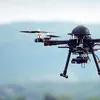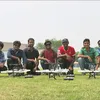Increasing population, encroachments, traffic problems, and infrastructure problems are major concerns for Indian roadways. In a bid to solve issues related to inadequate road infrastructure, Chennai-based The ePlane Company is looking to take the aerial route.
Ubifly Technologies Private Limited, better known as The ePlane Company (TEC), was founded in 2016 by Pranjal Mehta and Satyanarayanan Chakravarthy to provide aerial delivery services. The startup ideated out from the National Centre for Combustion Research & Development Lab (NCCRD).
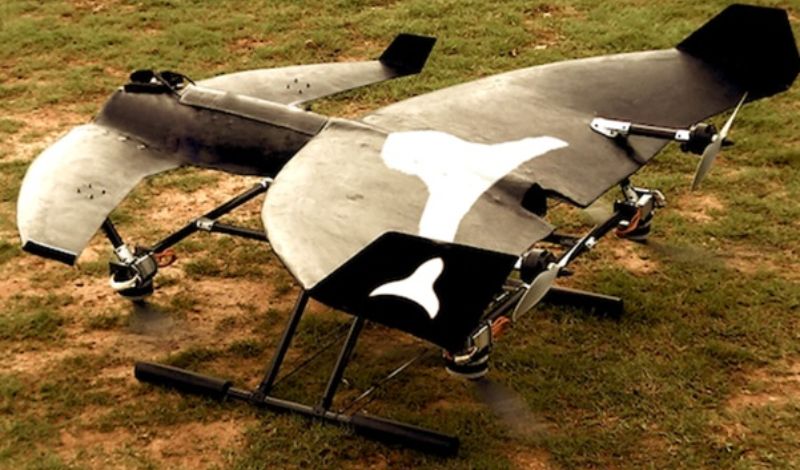
TEC designed Ek Hanz to deliver payloads up to six kg, developed especially to deliver goods and packages. [ Image Credit: The ePlane Company]
Speaking with YourStory, Satyanarayanan, Co-founder and CTO, explains that the startup is building electric planes and unmanned aerial vehicles (UAV) for short-range intracity travels and is aimed at redefining urban mobility.
He adds that the products developed by the startup are unique in nature because they are a hybrid mix of drone and electric aeroplane technology.
Satyanarayanan has been teaching Aerospace Engineering at IIT Madras since 1998. He is also the head of the National Centre for Combustion Research & Development Lab (NCCRD) and the Centre of Propulsion Technology at IIT Madras.
His study on propulsion was one of the reasons that led to the launch of TEC. On the other hand, Pranjal, an alumnus of IIT Madras, was previously involved in building short distance daily flying vehicles.
“Electric cars are now more expensive than traditional combustive vehicles and the major reason for this is the cost of the battery. Users expect similar mileage from both the vehicles and thus, EV cars need to pack up batteries to match the mileage of an ICE car, thereby increasing the cost of the vehicles. However, that will not be the case for aeroplanes as it is not possible to pack up batteries on planes because it will not be able to take a flight. This brings down the cost of electric aeroplanes to that of a conventional aircraft,” says Satyanarayan.
He explains that TEC vehicles are a hybrid — they take off and land like a drone while moving forward in the air like an electric aeroplane.
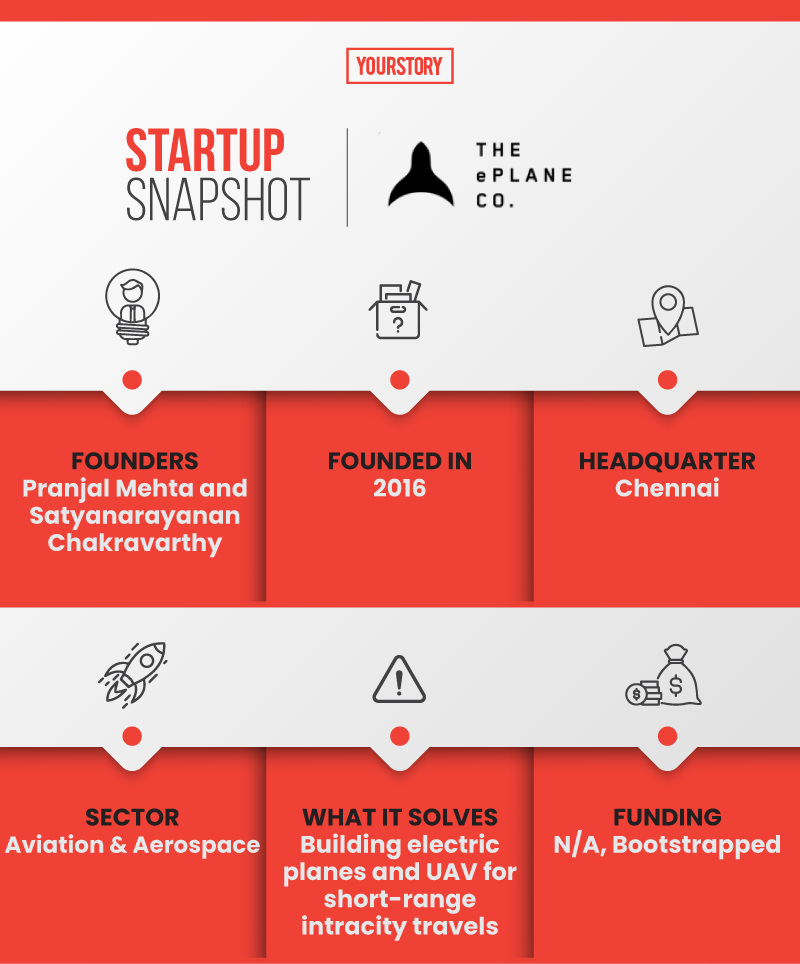
Illustration by YS Design
Taking the aerial route
Incubated at IITM Incubation Cell, IIT Madras, TEC founder made an initial investment of around Rs 30 lakh to develop the UAVs.
Co-founder Satyanarayan reveals that the startup has designed three UAV models. TEC’s Ek Hanz has been designed to deliver payloads up to six kg, developed especially to deliver goods and packages. The all-electric vehicle can fly continuously for 100 km at a cruise speed of 50 km/h.
The startup claims that its copyrighted ML algorithms enable a supervision-free flight. The vehicle takes off and lands vertically like a drone with a one push button. However, it moves forward like a plane and automatically detects any obstacles such as trees or power poles, etc. to ensure a safe flight.
TEC’s next product is Scout, a drone designed and developed for mobile surveillance and security. It has a powerful onboard processor and a long lasting battery to ensure proper surveillance during crises.
Apart from this, Satyanarayan adds that TEC is developing a hybrid auto-pilot e-plane Vayu to carry out surveillance operations in large areas. While it is smaller than Ek Hanz, Vayu is being designed to fly for more than two hours continuously on one charge.
The 10-member startup is now working towards building a two-seater electric air taxi, named as e200, to help office goers commute to work.
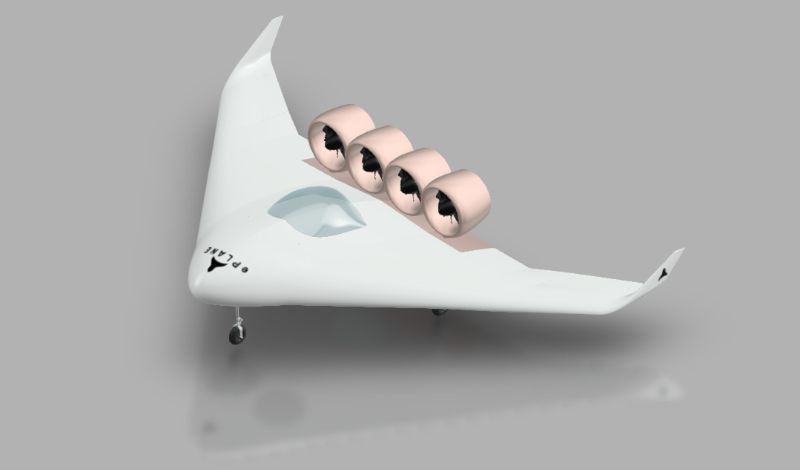
Conceptual drawing of TEC's e200 [ Image Credit: The ePlane Company]
Winning a growing market
Satyanarayan says that the products are yet to be deployed and claims that the company has received DCGA approval for “beyond visual line of sight” (BVLOS) trials of the UAVs under the Aerospace Industry Development Association of Tamil Nadu (AIDAT) consortium.
According to a report by Research and Markets, India's commercial drone market is expected to grow at a CAGR of 12.4 percent in 2020-2026. The report added that the growth in the use of drones is being fueled amid the COVID-19 outbreak.
As of now, the majority of drones are used for surveillance and mapping. However, the pandemic outbreak has now highlighted the importance of using drones for delivery.
In June, the Directorate General of Civil Aviation (DGCA) allowed 13 companies to conduct trials to check the viability of using drones for commercial operations, mainly for delivering medicines and groceries.
Several notable startups such as Aarav Unmanned Systems, Detect Technologies, ideaForge, and Skylark Drones, among others, have been deploying their drones for surveillance and security purposes.
Satyanarayan explains that The ePlane Company is not focused on building drones but is aiming to build electric planes that will become the future of daily mobility.
Speaking about future plans, the co-founder adds that the startup is currently building a two-seater electric aeroplane, which will operate as an air taxi. He also revealed that the bootstrapped startup is looking to raise external funding.
“It will take us at least two years to build the aeroplane, and then another couple of more years to get aviation approvals. With this innovation, we are looking to cater to office goers,” he adds.
Edited by Saheli Sen Gupta
India’s most prolific entrepreneurship conference TechSparks is back! With it comes an opportunity for early-stage startups to scale and succeed. Apply for Tech30 and get a chance to get funding of up to Rs 50 lakh and pitch to top investors live online.
Link : https://yourstory.com/2020/10/electric-planes-uavs-startup-redefine-urban-mobility
Author :- Shreya Ganguly ( )
October 09, 2020 at 05:40AM
YourStory

